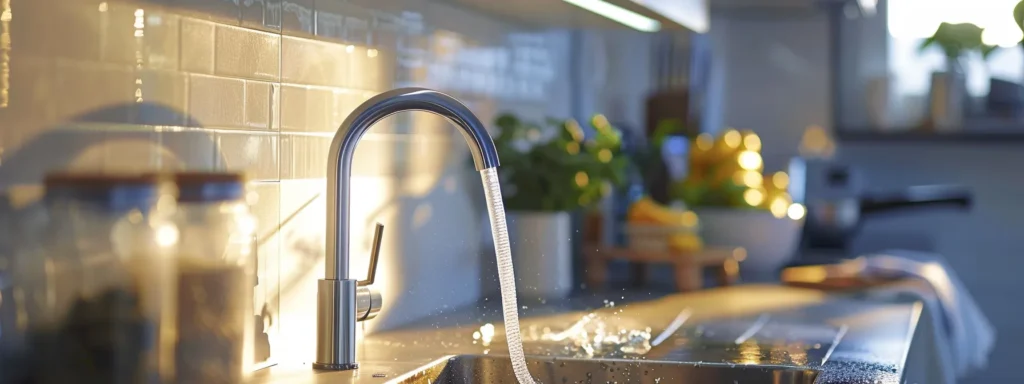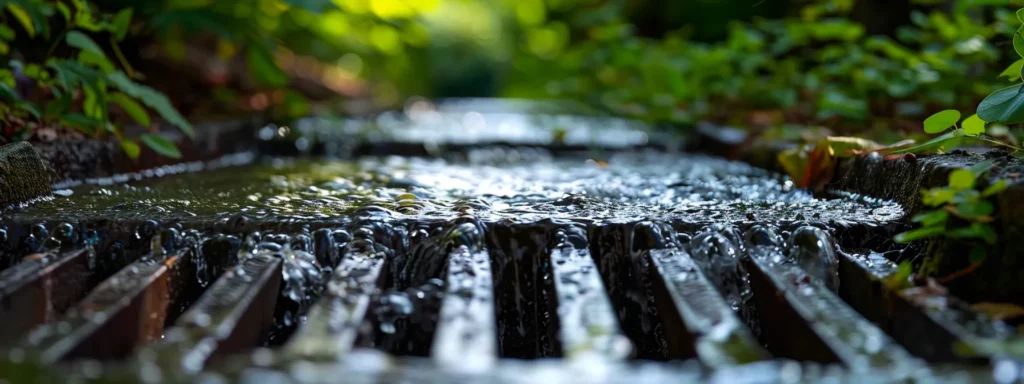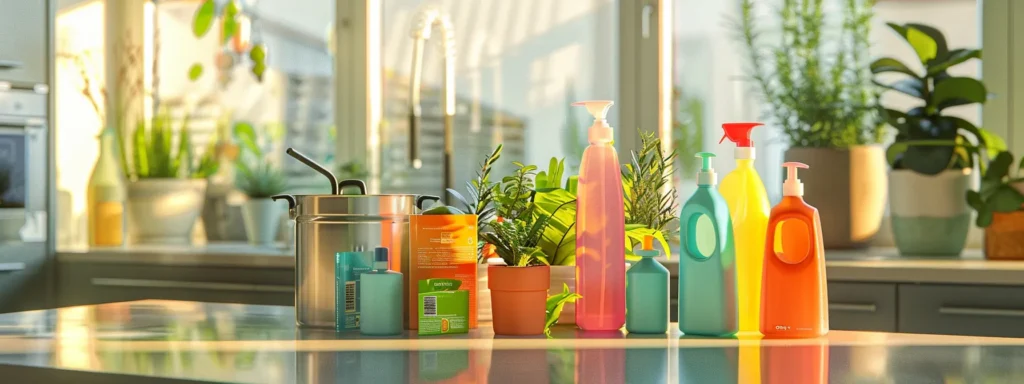Effective Residential Drain Cleaning Techniques
Many homeowners underestimate the significance of regular drain cleaning, often waiting until a clogged drain causes frustration. This blog post will cover effective techniques for residential drain cleaning, examining methods such as hydro jetting and specific tools needed for the job. Readers will gain valuable insights on proper maintenance to prevent debris buildup, ensuring drains flow freely and efficiently. By addressing common drain issues, this content aims to help homeowners avoid costly repairs and maintain a clean and functional drainage system.
Essential Key Takeaways for Effective Drain Cleaning Techniques
- Regular drain cleaning prevents serious plumbing issues and costly repairs
- Timely interventions protect home environments from unpleasant odors and clogs
- Utilizing appropriate tools ensures effective resolutions for various drain problems
- Seasonal inspections help maintain optimal drainage and enhance plumbing longevity
- Awareness of proper waste disposal methods minimizes the risk of future drain blockages
Understanding the Importance of Regular Drain Cleaning

Indicators such as slow drainage and unpleasant odors signal a need for immediate drain cleaning. Neglecting drain maintenance can lead to toxic buildups of soap scum and other debris, increasing the risk of serious plumbing issues. Regular cleaning, including the use of effective drain cleaners or gels and hydro jetting, ensures that these concerns are addressed before they escalate into more significant problems.
Signs That Indicate a Need for Immediate Drain Cleaning
Regular drain cleaning services are essential when signs of troublesome clogs become evident. For instance, if a residential drain becomes slow to empty, it may signal the buildup of oil, food particles, or soap scum. Ignoring such indicators can lead to severe plumbing problems that necessitate costly repairs; thus, addressing slow drainage swiftly can save homeowners from undesirable leaks and further complications.
Another significant sign indicating the need for immediate drain cleaning is the presence of unpleasant odors emanating from sinks or drains. These odors often result from decay within the pipes, which could include organic matter or chemical reactions involving hydroxide. Taking timely action not only preserves the integrity of plumbing but also ensures that the home remains a pleasant and safe environment for its occupants while maintaining optimal functionality.
Consequences of Neglecting Drain Maintenance
Neglecting drain maintenance can lead to severe consequences for homeowners. As debris accumulates within pipes, it can create clogs that obstruct proper drainage. This buildup not only disrupts daily activities but can also necessitate professional sewer line services to resolve extensive plumbing issues, which can be costly and time-consuming.
Failing to regularly maintain drains increases the risk of unpleasant odors and sewage backups, posing health hazards to residents. In some cases, a simple drain opener may provide a temporary fix; however, without consistent maintenance, the underlying problems persist, potentially damaging plumbing systems further. Homeowners are encouraged to recognize the importance of timely interventions to maintain functional and safe sewer systems:
- Regular inspections prevent excessive buildup within pipes.
- Timely cleanings reduce the likelihood of severe clogs.
- Understand the benefits of using effective drain openers for maintenance.
- Awareness of odors can signal the need for immediate service interventions.
How Regular Cleaning Can Prevent Bigger Issues
Regular drain cleaning plays a crucial role in preventing significant plumbing issues, particularly in residential settings where clogged sinks can cause daily disruptions. By removing built-up debris and using effective methods, homeowners can avoid the emergencies that arise from severe blockages. Utilizing appropriate techniques, including the careful application of chemical substances, can maintain clear drains and promote a healthy plumbing system.
Implementing consistent maintenance not only facilitates efficient drainage but also safeguards against potential hazards. For instance, when cleaning drains, wearing eye protection is vital, especially when using strong cleaners or handling unexpected clogs. Additionally, homeowners may consider a pump for larger drain issues, which can help mitigate risks associated with neglecting drain upkeep, ensuring that their plumbing remains in optimal condition.
Regular drain cleaning keeps homes safe and functional. Let’s consider some effective techniques that will help maintain clear and efficient drains.
Effective Techniques for Residential Drain Cleaning

Homeowners can effectively address drain issues by employing various techniques. Using a plunger is ideal for handling basic clogs, while a drain snake can tackle deeper blockages. For efficient cleanup, a wet/dry vacuum is quite beneficial. The use of natural enzymes, including those containing potassium hydroxide, can promote a healthy drainage system, but it’s essential to weigh the pros and cons of chemical cleaners like Drano. Awareness of sewer gas is equally important in maintaining safe plumbing conditions.
Using a Plunger for Basic Clogs
Using a plunger is an effective initial step for homeowners facing basic clogs in fixtures such as sinks and showers. This simple tool creates pressure and suction that can break apart and dislodge minor blockages caused by accumulated matter, which may otherwise lead to unpleasant odors or slow drainage that disrupts daily activities. For optimal results, it is essential to use the plunger correctly, ensuring a tight seal around the drain and applying consistent force to maximize the impact on the clog.
In cases where clogs are persistent or accompanied by foul smells, homeowners may need to combine plunger usage with video camera inspections to identify deeper issues within the piping system. If the blockage is related to a septic tank problem, professional assistance may be necessary to prevent further complications. Regular plumbing maintenance, including the timely use of a plunger, can keep drains clear and functioning efficiently while minimizing the risk of future plumbing emergencies.
Employing a Drain Snake for Deeper Blockages
Employing a drain snake is an effective method for addressing deeper blockages that simple tools may not resolve. This flexible, metal device can navigate through pipes to reach clogs located further down the line, making it an essential tool for homeowners facing persistent drainage issues. In some instances, combining a drain snake with chemical drain cleaners featuring sodium hydroxide can enhance the cleaning process by breaking down stubborn debris that obstructs proper flow.
When utilizing a drain snake, homeowners should ensure proper technique to maximize its effectiveness. Attaching it securely to a power drill can make penetrating tough blockages easier, while maintaining a steady hand during operation can prevent damage to the pipes. While chemical options like baking soda or sodium hydroxide can offer temporary relief, regular use of a drain snake can significantly improve the longevity and functionality of the drainage system.
Utilizing a Wet/Dry Vacuum for Efficient Cleanup
Utilizing a wet/dry vacuum can significantly improve the efficiency of residential drain cleaning. This versatile tool effectively sucks up debris and liquids from sinks, tubs, and other drains, making it an essential solution for tackling clogs. Homeowners should consider using personal protective equipment, such as gloves and goggles, when operating the vacuum to ensure safety throughout the process.
For enhanced results, homeowners can combine the vacuuming process with natural cleaning agents like lemon juice and vinegar. These ingredients, known for their mineral-clearing and acid properties, help break down buildup that the vacuum may not capture alone. By incorporating these methods into their cleaning routine, individuals can maintain their plumbing systems more effectively and prevent future clogs.
The Role of Natural Enzymes in Drain Cleaning
Natural enzymes serve as an effective alternative for drain cleaning, targeting organic matter that often accumulates in pipes. Unlike harsh chemicals such as sulfuric acid, which can pose significant hazards to both plumbing and health, enzyme-based cleaners break down debris without damaging porcelain or plastic fixtures. This gentler approach not only helps maintain the integrity of the plumbing system but also contributes to a safer home environment.
Utilizing natural enzymes can enhance the performance of water filters in households, preventing clogs that might disrupt drainage. By regularly incorporating these enzymes into maintenance routines, homeowners can address common issues like foul odors and slow draining efficiently. This proactive measure fosters a more reliable plumbing system, ensuring that drains remain clear and functional over time.
Chemical Cleaners: Pros and Cons
Chemical cleaners can provide a quick solution for dealing with stubborn clogs caused by waste buildup within pipes. These products often work efficiently to dissolve blockages, leading to improved drainage and reduced risk of sanitary sewer backups. However, homeowners should exercise caution as frequent use of harsh chemicals may weaken plumbing fixtures over time and could potentially lead to more severe plumbing issues.
Incorporating a plunger as an initial step can often resolve minor clogs before resorting to chemical cleaners, minimizing risk. For deeper inspections, engaging a professional plumber may be necessary to assess potential underlying problems that chemical solutions cannot address. Understanding the pros and cons of chemical cleaners empowers homeowners to make informed decisions that contribute to a safer and more effective drain cleaning strategy.
A clean drain makes for a good home. The right tools will make the job easier and more effective.
Best Tools for Residential Drain Cleaning

Effective drain cleaning requires the right tools to tackle issues related to clogged drains. Recommended plungers can maximize suction for optimal performance, while various types of drain snakes offer solutions for deeper clogs. Wet/dry vacuums are advantageous for efficient cleanup, and choosing the right chemical cleaners can enhance maintenance efforts. Additionally, multi-functional tools simplify DIY drain maintenance for homeowners looking to prevent drain clogs effectively.
Recommended Plungers for Optimal Performance
Choosing the right plunger is essential for maintaining effective drainage in residential plumbing systems. Plungers designed with a cup that has a firm rubber base can create a stronger seal, generating more powerful suction to dislodge blockages caused by organic matter. When a plunger is used correctly, it can facilitate the removal of obstructions, allowing for improved flow without the need for more aggressive cleaners or chemical reactions.
Homeowners should consider investing in a flange plunger, which features an extended rubber lip suitable for toilet clogs, as well as a standard cup plunger for sinks and tubs. These tools can often tackle most common drainage issues, reducing reliance on chemical cleaners that may harm plumbing fixtures over time. Maintaining a clean, functional plumbing system is achievable with the right plunger on hand, ensuring homeowners can effectively respond to clogs as they arise:
| Type of Plunger | Ideal Use | Key Feature |
|---|---|---|
| Cup Plunger | Sinks and tubs | Firm rubber base for strong suction |
| Flange Plunger | Toilets | Extended lip for better sealing |
Overview of Various Types of Drain Snakes
Drain snakes come in various types, each designed to tackle specific clogging issues that can arise in home plumbing systems. A manual drain snake, often referred to as a plumber’s snake, is ideal for simple blockages caused by grease, hair, or food particles. For more complex clogs, powered drain snakes offer increased torque to dislodge stubborn debris, including those found in grease traps, where bacteria build-up can lead to serious drainage problems.
Another useful variant is the combination snake, which allows the user to switch between manual and powered modes for versatility in handling clogs. Regular usage of drain snakes can prevent the corrosion of pipes by mitigating lingering buildup within the system. Understanding the advantages of each type can aid homeowners in selecting the most effective tool for their needs:
| Type of Drain Snake | Ideal Use | Key Feature |
|---|---|---|
| Manual Drain Snake | Standard clogs | Flexible and easy to use |
| Powered Drain Snake | Severe blockages | Increased torque for tough clogs |
| Combination Snake | Versatile applications | Switch between manual and powered operation |
Advantages of Wet/Dry Vacuums in Cleaning
Wet/dry vacuums offer a powerful solution for addressing drain clogs in residential settings, especially in bathrooms where debris often accumulates. Their ability to efficiently suction away liquids and solids makes them an ideal tool for maintaining clean and clear drains. Homeowners can quickly remove standing water caused by blockages, preventing further damage to plumbing systems and reducing the risk of unpleasant odors or sanitation issues.
In addition to their effectiveness, wet/dry vacuums are also an environmentally friendly option for drain cleaning. They can minimize reliance on harsh chemical cleaners, such as those containing sodium, which can be damaging to both plumbing and the environment. By integrating this versatile tool into regular maintenance routines, homeowners can promote healthier drains while ensuring a safe and functional bathroom environment.
Choosing the Right Chemical Cleaners
When selecting the right chemical cleaners for residential drain maintenance, homeowners should consider options that effectively address common issues while being safe for their plumbing systems. Liquid cleaners that contain borax can be particularly useful for tackling soap residue and grease buildup in areas like the bathtub. This gentle yet powerful compound helps break down stubborn clogs without compromising the integrity of pipes, making it an excellent choice for regular maintenance.
It is also essential to be cautious when using chemical cleaners containing copper or harsher ingredients, as these can damage pipes over time. Homeowners should opt for products that strike a balance between effectiveness and safety. Regular use of natural alternatives or milder chemical options can promote a healthier drainage system, ensuring that drains remain clear and functional for the long term:
- Consider liquid cleaners with borax for soap scum removal.
- Avoid harsh chemicals containing copper to prevent pipe damage.
- Opt for products that maintain plumbing health.
Multi-Functional Tools for DIY Drain Maintenance
Multi-functional tools are invaluable for homeowners tackling DIY drain maintenance. A combination of a tank with pressure capabilities can effectively dislodge stubborn clogs, while also allowing for the addition of enzyme cleaners that break down organic matter within the plumbing system. This integrated approach not only enhances the cleaning process but also promotes a healthier drainage environment, reducing the risk of future blockages.
Utilizing these versatile tools can significantly simplify routine maintenance tasks. For example, employing a pressure-based system can quickly clear accumulated debris without the use of harsh chemicals, making it an eco-friendly option for homeowners. By regularly integrating enzyme treatments into the maintenance routine, individuals can maintain clear drains and extend the longevity of their plumbing systems, ensuring effective performance without disruption.
Using the right tools makes a difference, but it’s what follows that keeps drains clear. Learn how simple maintenance can save you from bigger problems down the road.
Maintenance Tips to Keep Drains Flowing Freely

Implementing regular preventative measures is essential for homeowners to maintain clear drains. Key practices include proper disposal of waste and seasonal cleaning to avert clogs. Additionally, professional inspections play a crucial role in identifying potential issues. Engaging professional services when necessary ensures that drains operate efficiently, preventing costly plumbing problems in the future.
Regular Preventative Measures for Homeowners
Implementing regular preventative measures is essential for homeowners looking to maintain clear drains. This includes being mindful of what goes down the sink and shower, such as avoiding the disposal of grease, hair, and other debris that can lead to clogs. By taking proactive steps, such as installing drain screens and regular inspection of plumbing lines, homeowners can significantly reduce the risk of severe blockages.
Additionally, scheduling seasonal drain cleaning can effectively keep drainage systems functioning optimally. This practice helps to clear any accumulated buildup and identify potential issues before they escalate into costly repairs. Engaging professional services for routine inspections ensures that every aspect of the plumbing system is in good working order, giving homeowners peace of mind regarding their drainage needs.
Best Practices for Proper Disposal and Use
Homeowners should practice proper disposal methods to maintain clear drains and prevent clogs. This includes avoiding the disposal of grease, food scraps, and non-biodegradable materials down the sink or toilet, as these substances can accumulate over time and lead to significant drainage issues. By educating all household members about responsible waste habits, the risk of stubborn blockages can be substantially reduced, enhancing overall plumbing performance.
In addition to being cautious about waste disposal, homeowners should utilize drain screens or strainers in sinks and showers to capture debris before it enters the plumbing system. Regular inspection and cleaning of these tools will further ensure smooth drainage while lessening the likelihood of clogs. Implementing these straightforward practices contributes to effective residential drain cleaning techniques and supports ongoing drain functionality.
Seasonal Cleaning to Prevent Clogs
Seasonal cleaning is a proactive approach that homeowners can implement to effectively prevent clogs in their drainage systems. By scheduling a thorough inspection and cleaning of their drains at least twice a year, individuals can identify potential problem areas before they escalate into significant blockages. This routine maintenance not only helps reduce the risk of slow drainage and unpleasant odors but also contributes to the overall longevity of the plumbing system.
Incorporating seasonal cleaning into home maintenance routines offers practical benefits. Homeowners can use this time to clear out accumulated debris and build-up that may have occurred over the preceding months, such as food particles and hair. By addressing these issues regularly, a smoother flow is ensured, ultimately preventing the need for more extensive and costly drain cleaning services down the line.
Importance of Professional Inspections
Professional inspections play a vital role in maintaining residential drains by identifying potential issues before they escalate. These evaluations allow skilled technicians to detect early signs of clogs, leaks, or structural problems within the plumbing system. By engaging experts for regular assessments, homeowners can ensure that their drainage systems remain functional and minimize the likelihood of costly repairs in the future.
Additionally, timely inspections provide valuable insights regarding the overall condition of plumbing systems, enabling proactive maintenance. Professionals possess the expertise to recommend appropriate cleaning techniques and solutions tailored to individual needs, further enhancing the efficiency of drainage. This proactive approach ultimately supports a healthier and more reliable plumbing environment in homes.
Engaging Professional Services When Necessary
Engaging professional services for drain cleaning is essential when homeowners encounter persistent issues that basic methods cannot resolve. Professionals possess the skills and advanced tools necessary to conduct thorough inspections and identify underlying problems within the plumbing system. By leveraging expertise, they can implement effective techniques that ensure drains remain clear and functioning optimally, ultimately preventing future complications.
Even with proper maintenance, drains may need a little extra help. In the next section, various cleaning products will be compared, shedding light on what works best for your home.
Comparing Residential Drain Cleaning Products

Understanding the various residential drain cleaning products available is essential for effective maintenance. Homeowners should consider features when choosing products, explore top recommended options, and evaluate budget-friendly versus premium choices. Additionally, eco-friendly cleaners provide sustainable benefits, and user reviews offer insights into effectiveness. This assessment will guide informed decisions for effective drain cleaning solutions.
Features to Consider When Choosing Products
When selecting residential drain cleaning products, homeowners should prioritize effectiveness and compatibility with their plumbing systems. They must assess whether a product targets the specific type of clog commonly encountered, such as grease or hair, ensuring it will provide the desired results. Additionally, reviewing whether a cleaner is safe for both standard and older plumbing materials is critical to prevent potential damage.
Another important feature to consider is the product’s environmental impact and safety for household use. Homeowners may prefer eco-friendly cleaners that minimize harsh chemical usage while still effectively breaking down debris. Additionally, reading user reviews can provide practical insights on how well a product performs in real-life situations, helping to guide informed decisions for maintaining clear drains:
| Feature | Description | Importance |
|---|---|---|
| Effectiveness | Targets the specific type of clog | Ensures desired results |
| Compatibility | Safe for various plumbing materials | Prevents potential damage |
| Environmental Impact | Uses eco-friendly ingredients | Promotes a safer household |
| User Reviews | Feedback on performance | Informs purchasing decisions |
Top Recommended Products for Effective Cleaning
Homeowners seeking effective drain cleaning solutions will find that enzyme-based cleaners are a top choice due to their ability to break down organic materials without harming plumbing systems. Products like bio-clean and zep are popular in residential settings, providing a safe and eco-friendly alternative to harsh chemical formulations. These cleaners not only address slow drainage but also promote a healthier environment by reducing the risk of odors and clogs.
For tougher blockages, liquid drain cleaners containing sodium hydroxide can be effective. Brands such as Drano or Liquid-Plumr can dissolve stubborn debris quickly. However, users need to handle these products carefully and follow safety guidelines to avoid damaging pipes. Homeowners should assess their specific drainage issues to select the most appropriate product for effective results:
| Product Type | Key Features | Ideal Use |
|---|---|---|
| Enzyme-Based Cleaners | Eco-friendly, safe for plumbing | Addressing organic material clogs |
| Sodium Hydroxide Cleaners | Powerful for tough clogs | Dealing with stubborn blockages |
Budget-Friendly Options vs. Premium Choices
When comparing budget-friendly and premium drain cleaning products, homeowners often weigh costs against effectiveness. Budget-friendly options, such as enzyme-based cleaners, provide an economical solution for addressing minor clogs without damaging plumbing systems. These alternatives not only save money but also contribute to an environmentally friendly approach, making them suitable for regular maintenance.
On the other hand, premium choices, including liquid drain cleaners with sodium hydroxide, offer powerful solutions for severe blockages. While these products can effectively dissolve stubborn debris, they require careful handling to avoid potential damage to plumbing fixtures. Homeowners should assess their specific drainage issues and budget to determine the most appropriate product for their needs:
- Budget-friendly options prioritize cost-effectiveness while maintaining safety.
- Premium products provide more powerful solutions for stubborn clogs.
- Careful consideration of specific drainage issues can guide product selection.
Eco-Friendly Cleaners and Their Benefits
Eco-friendly cleaners offer a safe and effective alternative for maintaining residential drains. These products, often composed of natural ingredients, break down organic matter without causing damage to plumbing systems. By using eco-friendly cleaners, homeowners can address common drainage issues like slow drains and foul odors while protecting both their health and the environment.
The benefits of eco-friendly drain cleaners extend beyond their non-toxic properties. They help reduce the reliance on harsh chemicals that can harm plumbing and aquatic ecosystems. By integrating these naturally formulated solutions into regular maintenance routines, homeowners can ensure their drains remain clear and functional while contributing to a healthier home and community.
User Reviews: What Homeowners Are Saying
User reviews play a critical role in informing homeowners about the effectiveness of various drain cleaning products. Many users appreciate enzyme-based cleaners for their eco-friendly properties and gentle action on plumbing systems, often noting that these solutions effectively address organic clogs without potential harm to pipes. Homeowners frequently express satisfaction with how these products not only clear slow drains but also help maintain pleasant indoor air quality by minimizing unpleasant odors.
Products are important, but the real challenge lies in the issues beneath the surface. Understanding common drain problems can guide homeowners toward effective solutions.
Addressing Common Drain Issues

Effective solutions for slow drains in kitchens often involve targeted cleaning methods that address grease and food buildup. For bath and shower drains, specific techniques can manage hair and soap scum effectively. Troubleshooting issues with toilets requires understanding common blockages, while managing outdoor drainage systems ensures proper water flow. Finally, preventative measures help maintain clear drains and reduce future problems, enhancing overall plumbing efficiency.
Solutions for Slow Drains in Kitchens
To effectively address slow drains in kitchens, homeowners should focus on regular maintenance and targeted cleaning solutions. One approach involves using a combination of hot water and vinegar, which can help break down grease and food particles that commonly accumulate in kitchen sinks. This natural method not only clears blockages but also helps eliminate unpleasant odors, resulting in a more pleasant cooking environment.
Another practical solution for kitchen drains is the use of a sink strainer to prevent food scraps from entering the plumbing system. By implementing this simple tool, homeowners can significantly reduce the risk of clogging and the need for extensive cleaning efforts. Additionally, scheduling seasonal drain cleaning can further enhance the efficiency of kitchen drains, ensuring that they function smoothly and effectively over time.
Effective Methods for Bath and Shower Drains
To effectively manage bath and shower drains, homeowners should prioritize routine cleaning to prevent hair and soap scum buildup. Utilizing a mixture of baking soda and vinegar can be an effective natural method for breaking down clogs, while hot water is beneficial for washing away residues that contribute to slow drainage. Regularly applying these techniques can ensure that drains function optimally, reducing the likelihood of severe blockages.
Additionally, installing drain screens can significantly aid in preventing debris from entering the plumbing system. These screens act as a barrier against hair and other materials, making maintenance simpler and more efficient. By combining proactive measures with routine cleaning, homeowners can maintain clear and functional bath and shower drains, ultimately enhancing the efficiency of their plumbing systems.
Troubleshooting Problems With Toilets
Troubleshooting issues with toilets often begins with identifying common problems such as clogs or weak flushing. When a toilet struggles to flush properly, it could result from an obstruction within the drain line or buildup inside the toilet itself. Homeowners should consider using a plunger to break up minor clogs, as this can often restore proper flushing and drainage without the need for specialized tools.
If persistent issues arise, more thorough inspection may be necessary. Homeowners might need to use a drain snake to reach deeper blockages that are not addressed by simple plunging. This proactive approach not only alleviates immediate concerns but also ensures long-term functionality and reliability of the toilet system:
- Identifying common toilet issues and their symptoms.
- Using a plunger for minor clogs to restore flushing.
- Deploying a drain snake for deeper, persistent blockages.
Managing Outdoor Drainage Systems
Managing outdoor drainage systems is crucial for preventing water accumulation and ensuring proper flow away from the home. Homeowners should regularly check gutters and downspouts for clogs caused by leaves and debris, as these blockages can lead to overflow and foundation damage. Additionally, installing drainage grates or systems can help direct water away from the home, significantly reducing the risk of flooding during heavy rainfall.
Proper maintenance of outdoor drainage involves ensuring that drainage ditches and French drains remain clear of soil and debris buildup. Regularly inspecting these areas allows homeowners to identify potential issues before they escalate, fostering a more effective drainage system. By addressing these concerns proactively, homeowners can protect their property from water-related damage and maintain the functionality of their outdoor spaces.
Preventing Future Drain Issues
Preventing future drain issues requires a proactive approach to maintenance and waste management. Homeowners should be mindful of what is disposed of down their sinks and toilets, as items like grease, hair, and food particles can easily accumulate and lead to significant blockages. Regularly using drain screens or filters can be an effective method to catch debris before it enters the plumbing system, contributing to smoother flow and reducing the likelihood of clogs.
Incorporating seasonal inspections and cleanings plays a critical role in maintaining clear drains. Homeowners benefit from scheduling professional evaluations to identify potential vulnerabilities or build-up in the plumbing system before they become problematic. By staying ahead of drainage concerns with timely interventions, individuals can ensure that their plumbing remains functional and free from disruptions, ultimately preserving the overall health and efficiency of their home’s drainage system.
Conclusion
Effective residential drain cleaning techniques are essential for maintaining a functional plumbing system and preventing larger issues down the line. Homeowners can utilize various methods, from plungers to enzyme-based cleaners, ensuring they tackle clogs efficiently and safely. Regular maintenance and proper disposal practices significantly reduce the risk of blockages and unpleasant odors. By integrating these techniques into their routine care, residents can safeguard their drainage systems, promoting a healthier and more reliable home environment.







